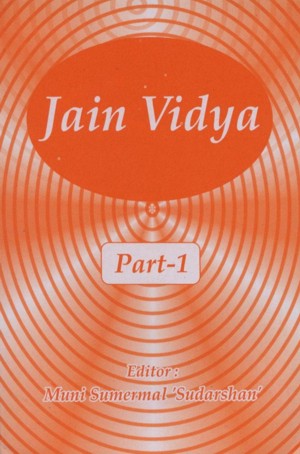Lesson - 22
Savadya-Niravadya
Raman was a boy of sixteen years. Once, he happened to come to the place where monks were staying. His friend Mohan was sitting there with a band of white cloth on his mouth. Finding him there Raman said ‘Mohan! What are you doing here? Let us go to the market.’
Mohan: I can’t go anywhere. I have taken the vow of samayika.
Raman: Then what is samayika?
Mohan: To abandon any (savadya) inauspicious act is called samayika.
Raman: What is savadya yoga?
Mohan: Savadya means inauspicious act, and yoga means activity. Activities which are not free from sins are all savadya, such as causing violence, telling a lie, stealing in business transactions etc. All these have to be given up in samayika.
Raman: Can’t you attend to your business matters at this moment?
Mohan: Leave aside business, I can’t even ask you to move here and there.
Raman: Well, I am just going to the market to bring vegetables. Would you like to eat them?
Mohan: What are you saying? I can’t even touch the vegetables. If I happen to touch the vegetables, or even if a drop of sachitta (with life) water falls on my body, I shall have to do penance for removal of the sin.
Raman: I am free to do everything; why not you?
Mohan: Well! My dear friend, you have not taken any vow. At present I am practising samyama (restraint).
Raman: Are you alone or someone else is also engaged in sadhana?
Mohan: Why just me! Look at the monks sitting here. They have dedicated their whole life in samyama-i.e. restraint.
Raman: Are they also forbidden to undertake the above-mentioned activities?
Mohan: Oh! they can never ever do such activities. I am presently abstaining from inauspicious acts for the duration of 48 minutes only, but these holy souls have given up the inauspicious acts for their whole life.
Raman: Then what are you doing here, sitting like this?
Mohan: I am indulged in auspicious acts.
Raman: What do you mean by ‘niravadya’ (sinless auspicious actions)?
Mohan: ‘Niravadya’ means activities free from sin, e.g. to observe non-violence, truth, non-stealing, celibacy and non-possession. And also to be engaged in self-introspection and self-study.
Raman: All these saints are sitting here. Are they too engaged as above?
Mohan: What do I say about these noble souls! I am performing the unblamable acts temporarily (for only 48 minutes), whereas these saints have taken lifelong vow to lead lives free from sins.
Raman: Are you benefited by samayika in any way?
Mohan: Yes, not just in small ways, the practice of samayika has improved my ways of behaviour. I have started to experience real happiness. I feel that now I am a true human being. I have acquired the virtue of equanimity.
Raman: Well, friend! From today I shall also practise samayika like you.
Questions:- What is the difference between samayika and ascetic life?
- Which acts are forbidden in the course of samayika?
- Explain the terms savadya and niravadya.
- What is the benefit of doing samayika?
- How much time does samayika take?
